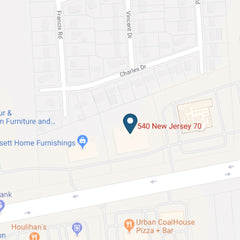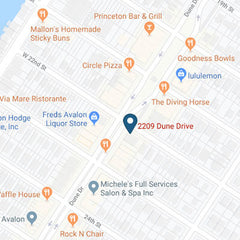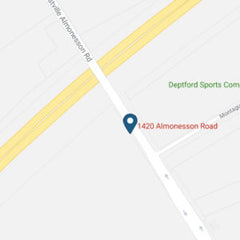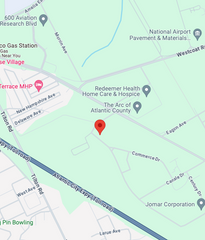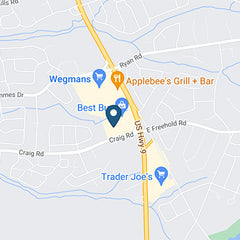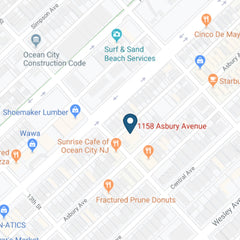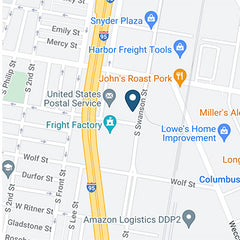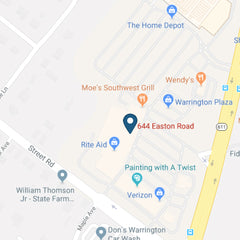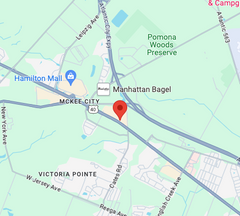Floors take a beating under the best circumstances, but nowhere near what the kitchen goes through—command central for cooking, homework, family gatherings and more. So, it's important to find a kitchen floor option that can withstand constant traffic and make the style statement you want it to.
To help you with this decision, we've weighed the pros and cons of five popular kitchen flooring types. But first, let's start with an important question you should ask yourself first: What should you look for in a kitchen floor?
-Low Maintenance
Nobody wants to spend most of their time cleaning their floors for this reason, the best kitchen floor will be easy to maintain. Liquid spills shouldn't make us sweat, that's what the stove is for! A kitchen floor should be easy to spot clean or mop in no time.
-Affordability
Flooring doesn't have to break the bank, and shouldn't. Affordability allows you to have the most beautiful flooring you want but with enough cash leftover to buy that Kitchen-Aide mixer you've been eyeing.
-Look
Looks matter! Perhaps your kitchen needs a modern look, or maybe your Pinterest is full of vintage on-trend floors. Whatever your look, you need kitchen flooring with versatility to achieve it.
-Durability
The cost of replacing floors is extra money you don't want to spend, so you want a floor that can withstand the heat and last a lifetime—or at least decades! The kitchen is the home of heat, spills and mess. If your floor can't take it, you might find yourself having to replace it early. Start with a flooring that's durable so you can love it longer.
Popular Kitchen Flooring Types
Hardwood

Hardwood flooring will never go out of style. It's the definition of a classic look. It'll give warmth to your kitchen and comes in virtually any finish you can think of. Not only that, if you ever want to update your kitchen, you can simply sand and stain your floors to match your updated look.
Pros
Whether you want thin strips of pale maple or wide planks of pine, there's a wood that will look just right in your kitchen. Wood never goes out of style, so you won't have to worry about updating it as your home evolves. It can be sanded and refinished to keep it looking its best.
Cons
You'll have to stay on top of spills; liquids can cause damage if they're not wiped right away. Wood dents and scratches easily, so it will need periodic finishing. And with how great hardwood floors are, they are also unfortunately the most expensive flooring option.
A Note About Engineered Hardwood
If you really want the look of hardwood but are concerned with how it will hold up as a kitchen floor option, consider engineered hardwood. Engineered hardwood is made of many layers that keep it durable overtime. It features a scratch-proof finish (which comes in handy if you're prone to dropping things in the kitchen), real hardwood, a core layer for durability, and a backing layer that helps battle moisture. It's basically an all-in-one flooring. To learn more about engineered hardwood, check out our other blog here!
Laminate
If your kitchen floor encounters frequent spills of food and the pitter patter of kids or pets, laminate flooring might be the solution. It mimics the look of tile or hardwood and has a lower price tag. It's a practical alternative to the hardwood floors, offering homeowners realistic wood finishes in a wide variety of styles.
Pros
Laminate flooring, which is composed of several layers of engineered material sandwiched together, is designed to imitate the look of wood or tile. It resists scratches and scuffs, thanks to an internal "wear layer" so it's great for homeowners whose kitchens must contend with small kids, pets or extremely heavy use. It's also easy to clean and maintain.
Cons
Laminate isn't as equipped to handle moisture as tile and vinyl are (it can warp when wet), so installing it in your kitchen can make the upkeep more challenging—you'll need a special cleaner and mop to clean it.
Vinyl

Vinyl is one of the easiest and most versatile kitchen flooring options. This man-made material is nearly impervious to stains, damage and water issues, and cleaning it is as easy as keeping it free of debris with sweeping, vacuuming or regular mopping.
Pros
One of the most inexpensive flooring options on the market, vinyl can approximate the look of pricier materials at a fraction of the cost. And like we mentioned before, it's a snap to clean, easy to patch if a spot gets damaged, and comfortable underfoot.
Also, it used to be that vinyl's main advantage was price—it wasn't exactly considered chic. But that's changed. Nowadays, this material comes in a sophisticated range of designs and finishes. It's available in sheets or tiles that mimic stone, wood, ceramic tile, and most embossed with textures that look and feel surprisingly realistic.
Cons
Vinyl can dent, bubble or curl overtime. Sharp objects may tear it and dirt can scratch and dull its finish. It also can fade in strong sunlight. Compared with other flooring materials, its life span is shorter (it will begin to show wear after 5 years or so).
Tile

Tile is a fantastic flooring choice for the kitchen. It not only looks elegant and clean, but it's also very easy to maintain and durable. There are a wide variety of tile options to choose from—including ceramic, marble, porcelain and quarry. Additionally, modern printing technology can generate porcelain and ceramic tile surfaces which mimic natural stone (marble and travertine), concrete and wood, and clean monotone styles. The versatility offered by tiles almost guarantees that you'll find a style that suits your kitchen floor ideas.
Pros
Ceramic tiles stand up to wear and tear, from muddy footprints to spills and splashes, like a champ and they are super easy to clean. The huge variety of low-priced options makes tile one of the most affordable kitchen flooring choices. And have you seen the trending styles of tile? Wide tile is trending for kitchens with good reason—it makes your kitchen look even bigger! If style and durability are your top criteria, then tile is the way to go.
Cons
Tile can crack as floors settle, and a dish or glass dropped on it is virtually guaranteed to shatter. It can also be cold and hard underfoot, so use a rug or cushioned mat to cancel out the discomfort. Moisture makes tile slippery; a textured surface can provide slightly more traction. Also, grout needs periodic sealing and special cleaning to keep stains at bay.
Natural Stone

Hard as a rock--get it? (Since natural stone is actually a rock). This makes it a durable, long lasting flooring solution for the kitchen. However, annual application of a quality below surface chemical stone sealer can create and invisible coat of protection over the stone, preventing these issues.
Pros
Stone floors have been around for centuries, so it doesn't get more classic than this. Like tile and concrete, they're cool underfoot, which is an advantage in hot climates. They're durable and require little day-to-day maintenance. And did we mention the natural beauty?
Cons
Natural stone may not scratch, but will stain since it's porous. Be extra careful with your glass of red wine. Natural stone requires more upkeep than other types of flooring. It must be cleaned with a stone cleaner or mild detergent. You also have to seal it every one to two years to protect its porous surface (some sealers will last longer). To get more information about natural stone, like travertine, check out our other blog here.
Now that you know the ins and outs of the kitchen flooring world, you should be closer to deciding. Whatever you dish out, these kitchen flooring options can take it! Kitchen floors have a big job to do—they've got to stand up to a lot of foot traffic, deal with spills and stains, and look great while doing it.
To help further, visit one of our locations to see the floors in person!
At Avalon Flooring, we want to make sure you're happy from your first step in our showroom to your first step on your new flooring—and as your partner in home design, we'll be there every step along the way. Consider us your "One-Stop Shopping" destination for all things flooring…(and window treatments)!
Our design consultants are equipped with the knowledge to guide you through the wide selection of products we offer, and our expert installation team is professionally trained to make sure everything gets installed the way you envision. We know your home is an expression of your sense of style, and we're here to make sure you'll be proud of it for years to come.
If you have any questions, please email us.


